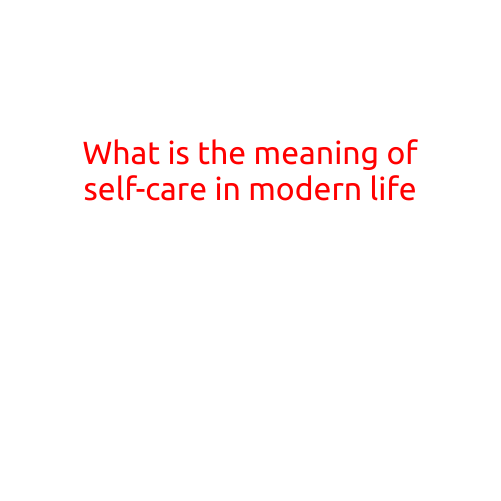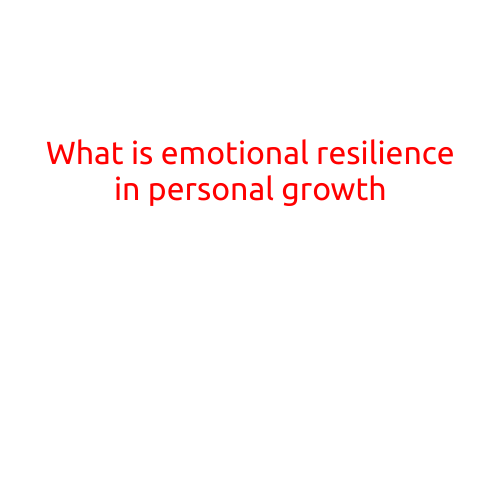
What is the Meaning of Self-Care in Modern Life?
In today’s fast-paced and often stressful world, the concept of self-care has become a buzzword. It’s no longer a mysterious or newfangled idea, but a necessary and essential part of maintaining a healthy and balanced lifestyle. But what exactly is self-care, and why is it so important in modern life?
A Definition of Self-Care
Self-care is the practice of taking care of one’s physical, emotional, mental, and spiritual well-being. It involves intentionally setting aside time to nourish and recharge, rather than sacrificing one’s own needs for the demands of others. Self-care is not selfish; it’s essential for maintaining a sense of purpose, happiness, and fulfillment.
The Rise of Self-Care
The self-care movement has gained significant momentum in recent years, largely due to the increasing awareness of the importance of prioritizing one’s own well-being. This shift can be attributed to various factors, including:
- Increased stress levels: The pressures of modern life, such as work, social media, and personal relationships, can be overwhelming, leading to feelings of burnout and anxiety.
- Changing societal values: There is a growing recognition that self-care is not a luxury, but a necessity for maintaining a healthy and balanced lifestyle.
- Access to information: With the rise of social media and online resources, people are now more aware than ever of the benefits of self-care and how to incorporate it into their daily lives.
Forms of Self-Care
Self-care can take many forms, including:
- Physical self-care: Engaging in regular exercise, getting enough sleep, and eating a balanced diet.
- Emotional self-care: Practicing mindfulness, journaling, and setting healthy boundaries with others.
- Mental self-care: Engaging in activities that stimulate the mind, such as reading, puzzles, or learning a new skill.
- Spiritual self-care: Connecting with nature, practicing meditation or yoga, or engaging in activities that bring a sense of purpose and meaning.
Benefits of Self-Care
The benefits of self-care are numerous and well-documented. Some of the most significant advantages include:
- Improved mental health: Self-care can help reduce stress, anxiety, and depression by providing a sense of calm and relaxation.
- Increased productivity: Taking care of oneself can lead to increased energy and motivation, allowing for greater focus and productivity.
- Stronger relationships: By prioritizing one’s own well-being, individuals can become more present and engaged in their relationships, leading to stronger and more meaningful connections.
- Increased self-awareness: Self-care encourages individuals to tune into their thoughts, feelings, and physical sensations, leading to a greater understanding of themselves and their needs.
Conclusion
In today’s fast-paced and often overwhelming world, self-care is no longer a luxury, but a necessity. By prioritizing one’s own well-being, individuals can cultivate a sense of balance, purpose, and fulfillment. Whether it’s physical exercise, emotional expression, mental stimulation, or spiritual connection, self-care is essential for maintaining a healthy and happy life. So, take a step back, breathe, and remember that self-care is not selfish – it’s essential.





